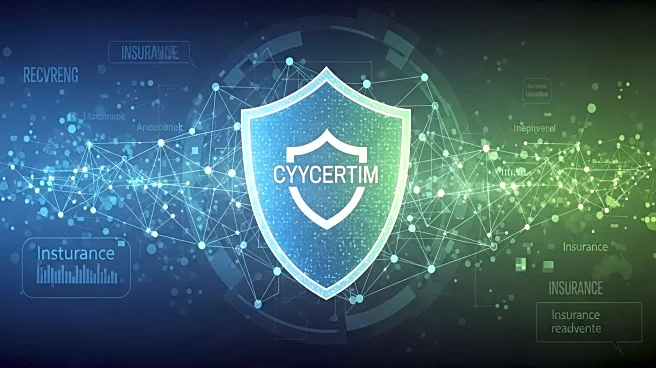What is the story about?
What's Happening?
Kantsu, a logistics company, faced a significant ransomware attack that disrupted its operations and led to a complex recovery process. The attack halted Kantsu's RPA and order placement systems, prompting the company to consider rebuilding its systems entirely. President Tatsujo decided to discard the old systems and invest in new ones, costing approximately ¥700 million (US$4.6 million). The company also faced challenges with its cyber insurance, which did not cover all damages, necessitating a loan of ¥2 billion (US$13 million) to maintain cash flow and ensure employee salaries and bonuses were paid. Kantsu worked with two security companies to address the breach, ultimately choosing a venture company for its quick response capabilities. The insurance claim process began three months post-incident, with the full amount eventually paid, but the delay in insurance payouts added financial strain.
Why It's Important?
The Kantsu incident underscores the critical importance of having robust cybersecurity measures and recovery plans in place. It highlights the limitations of cyber insurance, which may not cover all aspects of a cyberattack, leaving companies vulnerable to financial strain. The decision to rebuild systems rather than restore them reflects a strategic shift towards long-term security and resilience. This case serves as a cautionary tale for businesses, emphasizing the need for proactive cybersecurity strategies and the potential financial implications of cyberattacks. Companies must evaluate their insurance coverage and recovery plans to ensure they can withstand such incidents without severe operational disruptions.
What's Next?
Kantsu's experience may prompt other companies to reassess their cybersecurity and insurance strategies. Businesses might invest more in preventive measures and consider the speed and effectiveness of their recovery partners. The incident could lead to increased scrutiny of cyber insurance policies and their coverage limits, potentially driving changes in the insurance industry to better accommodate the needs of businesses facing cyber threats. Companies may also develop more comprehensive incident response plans to mitigate the impact of future attacks.
Beyond the Headlines
The ethical implications of cyberattacks, such as data privacy concerns and the potential exposure of personal information, are significant. Kantsu's decision to rebuild its systems rather than restore them may set a precedent for other companies facing similar challenges. The incident highlights the evolving nature of cybersecurity threats and the need for continuous adaptation and innovation in security practices. It also raises questions about the role of insurance in providing adequate protection against cyber risks.
















